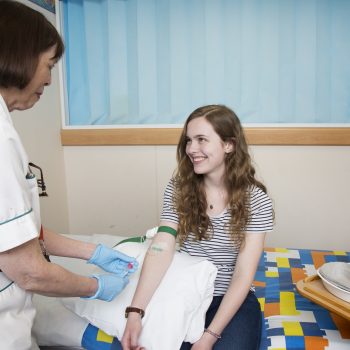New test to help personalise IBD medicine
IBD is a term used to describe two conditions, Crohn’s disease and Ulcerative Colitis. These lifelong illnesses mostly affect young adults and flare at intervals, producing debilitating symptoms including cramping abdominal pains, anaemia, weight loss and diarrhoea.
Previous Cambridge research showed that studying an immune cell called a CD8 T-cell could help doctors to identify which patients would go on to experience more aggressive disease and which patients would have a better outcome. This initial technical approach, however, is too complicated to be performed in routine clinical use.
Looking at nearly 70 people with the condition, the team developed a simpler blood test – using a method that is widely available in the NHS called qPCR – to identify the same patient subgroups as were found using the more complicated CD8 T-cell test.
They found the test was able to predict the strength of the condition in the patient and a patient’s likely outcome. This research can now help newly diagnosed people with IBD to identify the strength of their disease and enable their doctors to provide a personalised treatment plan – ensuring they receive the medication that is right for them, rather than a ‘one size fits all’ approach.
The research has been so successful that the test has been licenced by Cambridge Enterprise to a company, PredictImmune Ltd, who are making it available to patients in the UK to provide better outcomes, while in parallel it is being assessed by NICE to determine whether they recommend it can be used in the NHS.



